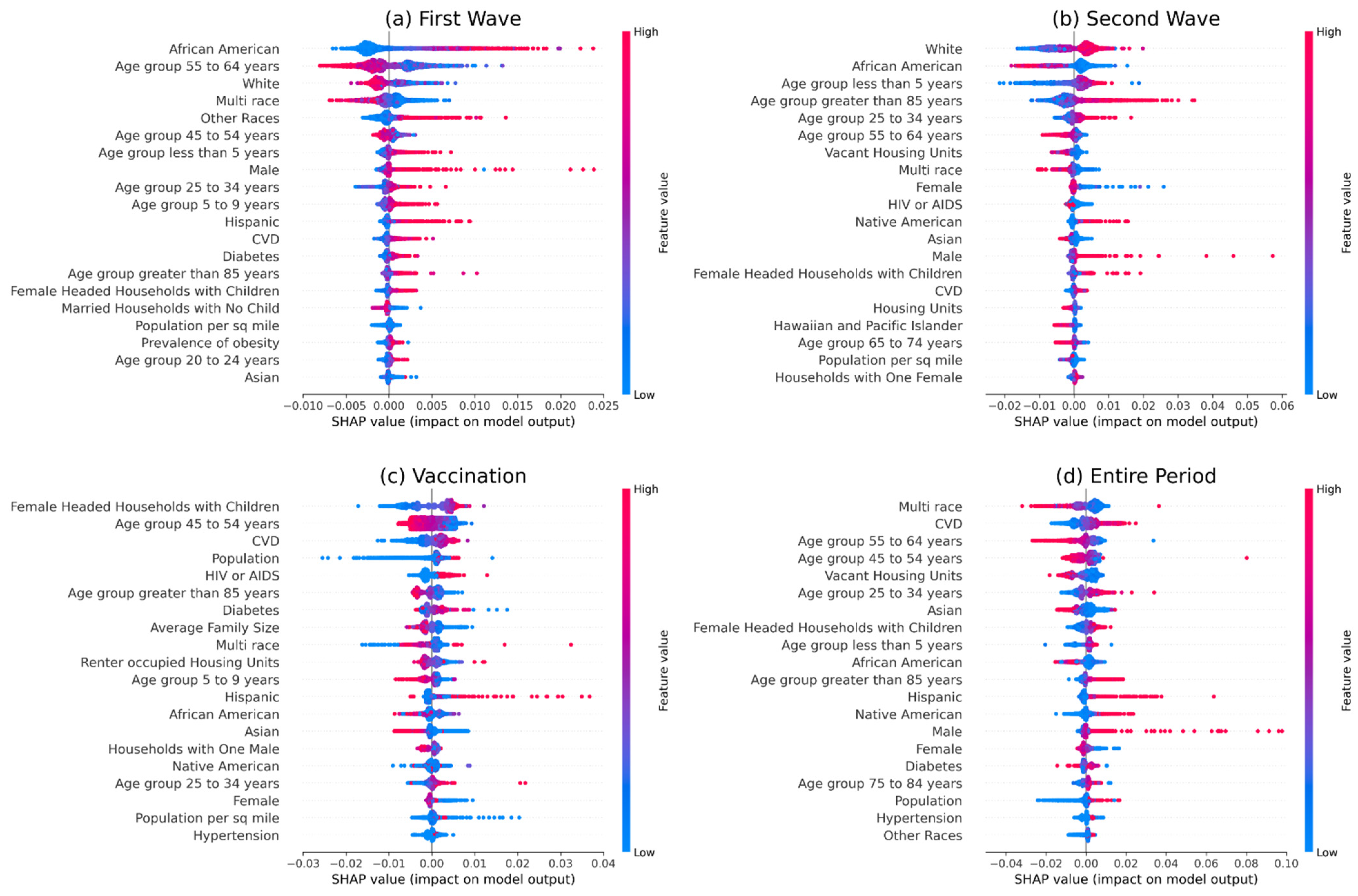The Disproportionate Impact of COVID-19 among Undocumented Immigrants and Racial Minorities in the US
Machine learning techniques are used to understand the impact of socio-demographic factors on COVID-19
Project Duration: 2021
Highlights
- We proposed machine learning techniques to identify the relation between COVID-19 cases and socio-demographic factors
- We used several machine learning models, such as Random Forest, XGBoost, etc. to train our model and later utilized the SHAP explainer to infer the association between different socio-demographic factors with COVID-19 cases/mortality.
Github Repository
Download Full Text
Abstract
Severe acute respiratory syndrome coronavirus 2 (SARS-CoV-2), the virus responsible for coronavirus disease 2019 (COVID-19), has had an unprecedented effect, especially among under-resourced minority communities. Surveillance of those at high risk is critical for preventing and controlling the pandemic. We must better understand the relationships between COVID-19-related cases or deaths and characteristics in our most vulnerable population that put them at risk to target COVID-19 prevention and management efforts. Population characteristics strongly related to United States (US) county-level data on COVID-19 cases and deaths during all stages of the pandemic were identified from the onset of the epidemic and included county-level socio-demographic and comorbidities data, as well as daily meteorological modeled observation data from the North American Regional Reanalysis (NARR), and the NARR high spatial resolution model to assess the environment. Advanced machine learning (ML) approaches were used to identify outbreaks (geographic clusters of COVID-19) and included spatiotemporal risk factors and COVID-19 vaccination efforts, especially among vulnerable and underserved communities. COVID-19 outcomes were found to be negatively associated with the number of people vaccinated and positively associated with age, the prevalence of cardiovascular disease, diabetes, and the minority population. There was also a strong positive correlation between unauthorized immigrants and the prevalence of COVID-19 cases and deaths. Meteorological variables were also investigated, but correlations with COVID-19 were relatively weak. Our findings suggest that COVID-19 has had a disproportionate impact across the US population among vulnerable and minority communities. Findings also emphasize the importance of vaccinations and tailored public health initiatives (e.g., mask mandates, vaccination) to reduce the spread of COVID-19 and the number of COVID-19 related deaths across all populations.
References
2021
-
 The Disproportionate Impact of COVID-19 among Undocumented Immigrants and Racial Minorities in the USInternational Journal of Environmental Research and Public Health, Dec 2021
The Disproportionate Impact of COVID-19 among Undocumented Immigrants and Racial Minorities in the USInternational Journal of Environmental Research and Public Health, Dec 2021